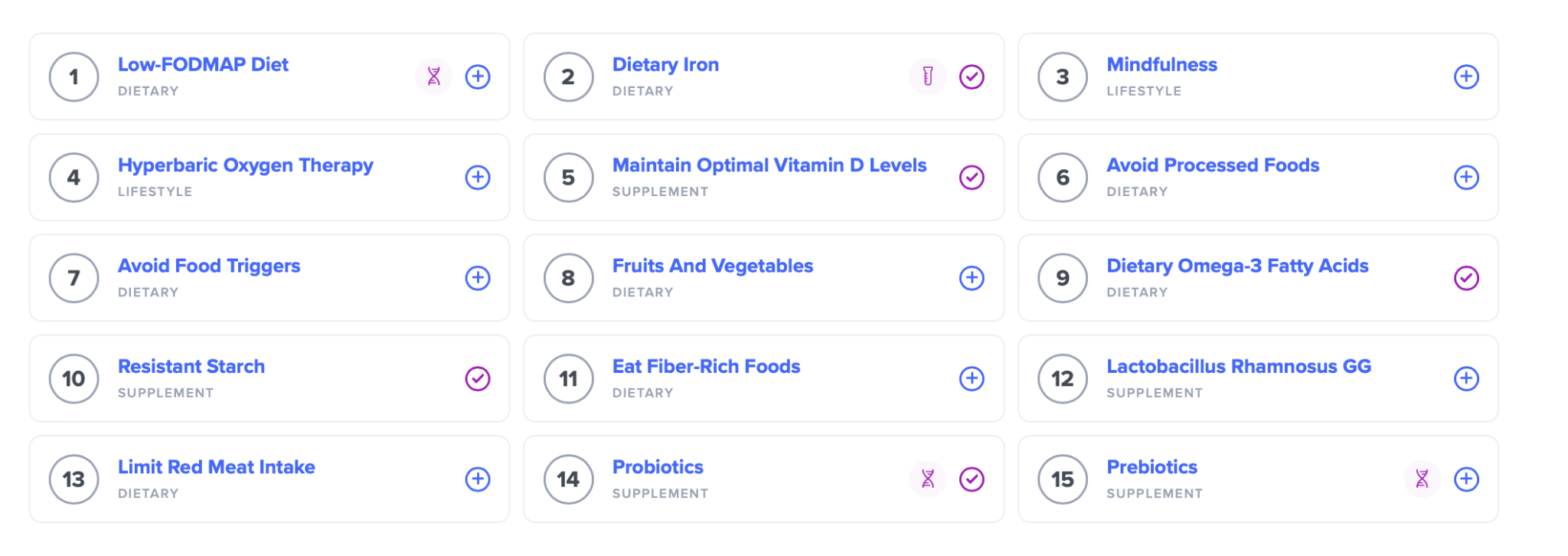
I recently came across a podcast where MrBeast talked about his struggles with Crohn’s disease.
He mentioned that he takes medication for it but also acknowledged that there are probably better solutions—he just doesn’t have the time to research them.
This really resonated with me because so many people dealing with chronic conditions feel the same way.
They go to a doctor, get prescribed meds, and move on without realizing that there are often other options.
For MrBeast (and anyone else struggling with Crohn’s), I believe there’s a way to manage, and possibly eliminate, the disease without heavy immunosuppressants like Remicade, which can increase susceptibility to infections.
My approach to tackling any health condition—including Crohn’s—starts with understanding genetics, identifying environmental triggers, and implementing evidence-based lifestyle changes.
The key to truly understanding and managing this condition lies in genetics.
Your genes influence how your body responds to inflammation, food, and gut health.
By looking at specific genetic markers, we can get a much clearer picture of what’s driving Crohn’s and what interventions might be most effective.
Here’s what I’d suggest if I were his health coach.
Understanding Genetic Risks
Using SelfDecode, I would first assess his DNA to determine if Crohn’s is primarily driven by genetics or environmental factors. A high genetic risk means certain pathways are overactive, while a low risk suggests external factors (like diet and gut microbiome imbalances) are the main culprits.
We have a Crohn’s Disease Report that looks at over 1 million genetic variants to determine your genetic risks.
My genes do not predispose me to Crohn’s disease, but for someone like Mr. Beast it might have massive implications on what would work for him, and what wouldn’t.
For example, we can look at the NOD2 gene.
The NOD2 gene is one of the most well-researched genes associated with Crohn’s disease.
Variants in this gene can lead to an overactive immune response, causing chronic gut inflammation.
If someone like MrBeast has a high-risk variant of this gene, it means his immune system is likely misfiring and attacking his gut lining, which is a major driver of Crohn’s symptoms.
In this case, for those with NOD2 variants, increasing butyrate production is a game-changer.
Butyrate is a short-chain fatty acid that helps regulate immune responses in the gut and strengthen the gut barrier.
One of the best ways to naturally boost butyrate is by consuming resistant starch, which ferments in the gut and feeds beneficial bacteria.
With SelfDecode, you also get personalized diet, lifestyle and supplement recommendations based on your DNA, labs, and lifestyle.
This is what mine looks like (Note that if I did carry the negative variant of the NOD2 gene, Resistant Starch would most likely move much higher up on my list of recommendations)
The Role of Diet
Diet plays a fundamental role in Crohn’s disease, and its impact can vary based on genetics.
What works for one person may not work for another, which is why understanding genetic predispositions is crucial.
We can determine how diet affects an individual’s risk for Crohn’s by looking at specific genes linked to gut health and food sensitivities.
For example, we can look at the FUT2 gene.
The FUT2 gene plays a crucial role in shaping the gut microbiome by determining how well you produce certain protective sugars that beneficial bacteria thrive on.
People with risk variants in FUT2 may have lower levels of beneficial gut bacteria, making them more susceptible to gut dysbiosis, inflammation, and conditions like Crohn’s disease.
If someone has an FUT2 risk variant, they might need targeted probiotic support to restore gut microbiome balance and reduce inflammation.
Improving Your Gut Health
MrBeast has access to the best doctors, yet he still struggles with Crohn’s because mainstream medicine often focuses on symptom management rather than root causes.
If he (or anyone else with Crohn’s) implemented these evidence-backed strategies, I’d be willing to bet that his Crohn’s would go into remission—probably with a 90-97% success rate.
But why guess when you can know exactly what works for your body?
SelfDecode takes out the guesswork by analyzing over 200 million genetic variants and providing you with personalized diet, supplement, and lifestyle recommendations to help you take control of your health.
Whether you’re dealing with Crohn’s, gut issues, or just want to optimize your health, your genes hold the answers.
Don’t rely on trial and error—get science-backed insights tailored specifically to you.
If you found this interesting, share it with someone who might benefit, and if you happen to know MrBeast, send it his way!


